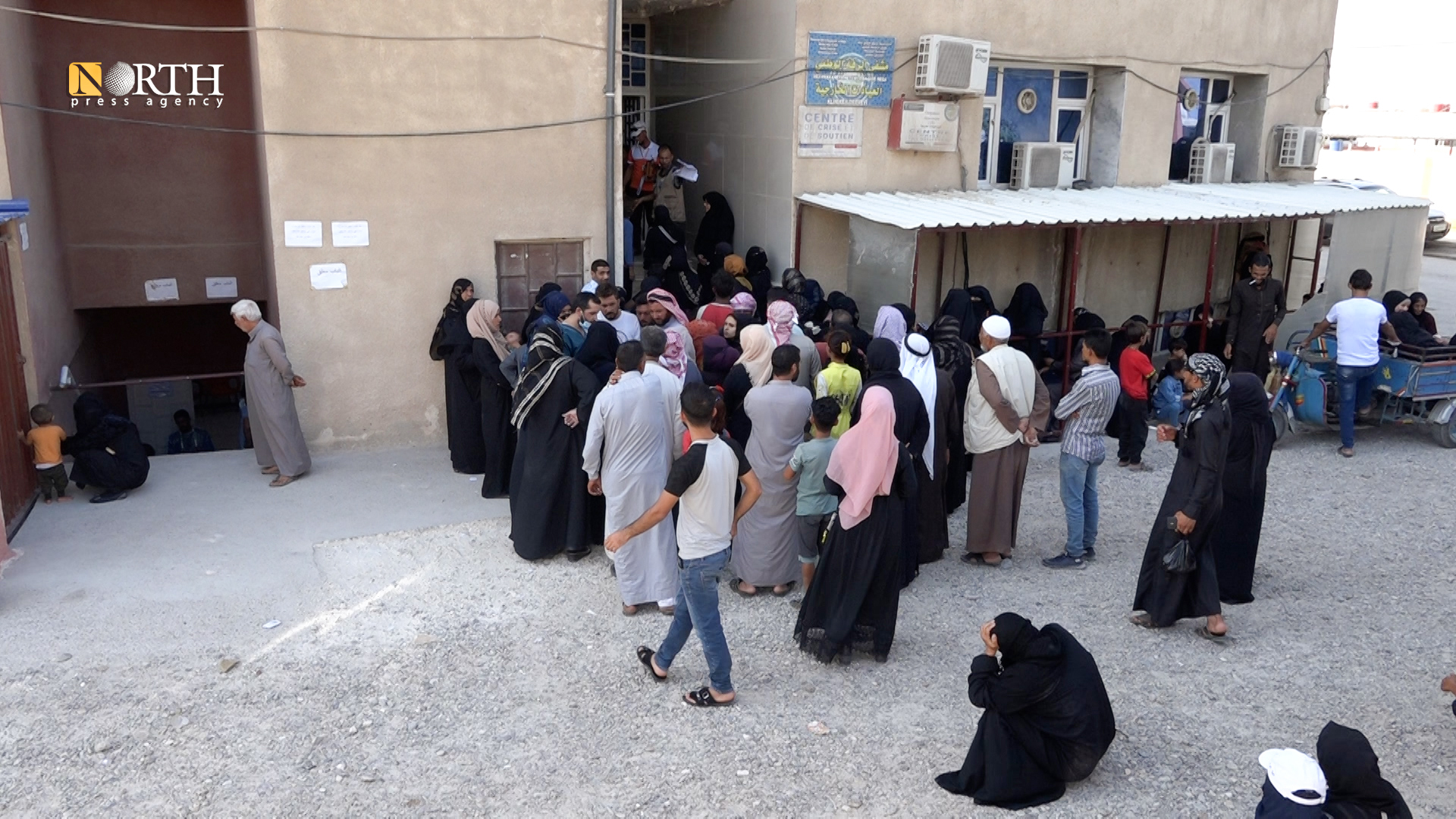RAQQA, Syrian (North Press) – Rasha Muhammad, 35, an IDP in Raqqa, northern Syria, had no alternative but to wait for long hours in front of a medication center providing free treatment for her 13-year-old child.
Rasha, a mother of three, said that she was compelled to awake her child at the early hours of dawn to take him to the center close to Raqqa National Hospital hoping to get a chance of free treatment for the child who had paresthesia.
Rasha, who comes from Deir ez-Zor, added that she waits for long hours up to noontime waiting in long queues with poor people.

Poverty and high prices of medical examination and private hospitals push a number of people in Raqqa to head to free medication centers at hospitals and dispensaries.
In front of those centers, one can see long queues of people waiting to get a free examination or get some pills or syrup.
Even before the working hours, women and children are seen in front of such centers to book a place in the queue.
Elderly women sit on the floor while children’s cries and screams could be heard from a distance waiting for their turn at those centers both in the city of in the countryside.
There are in Raqqa and its countryside 28 medication centers that provide free treatment including three public hospitals (Crescent, Obstetrics and the National Hospital), and 12 medication centers run by NGOs, according to the Health Committee in the Raqqa Civil Council affiliated with the Autonomous Administration of North and East Syria (AANES).
The AANES was first formed in 2014 in the Kurdish-majority regions of Afrin, Kobani and Jazira in northern Syria following the withdrawal of the government forces. Later, it was expanded to Manbij, Tabqa, Raqqa, Hasakah and Deir ez-Zor after the SDF defeated ISIS militarily there.
Zahra al-Kanas, 45, said that high costs of living and medicines in addition to poverty compelled her to “bear hardships in order to receive an examination and get medicine,” at these centers, if any.
Aboud al-Bedewi, member of the Health Care Office in the Health Committee, said that “Free medication centers provide medication and some medicines if available.”
Aboud told North Press the Health Committee does not interfere in the job of NGOs-run centers unless a complaint is filed against them. Such centers have their own work flow plans.

“Waiting for long hours are easier than paying large amounts of money,” said Melek al-Jassem, 23, adding, “The services rendered by public medication centers are good compared to private hospitals and centers.”
Al-Jassem went to a free rendered medication center to examine her 4-year-old son who has hypocalcaemia in order to get medicines.
Al-Jassem, a mother of three, the eldest is four, called for rendering free medicines at the public medication centers, “If free medicine not provided then most prescriptions go to the trash.”
Al-Jassem, among many others, manages her affairs of basic needs due to the high costs of living and the reduction in job payments which pushes her to wait for long hours in front of free medication centers.

